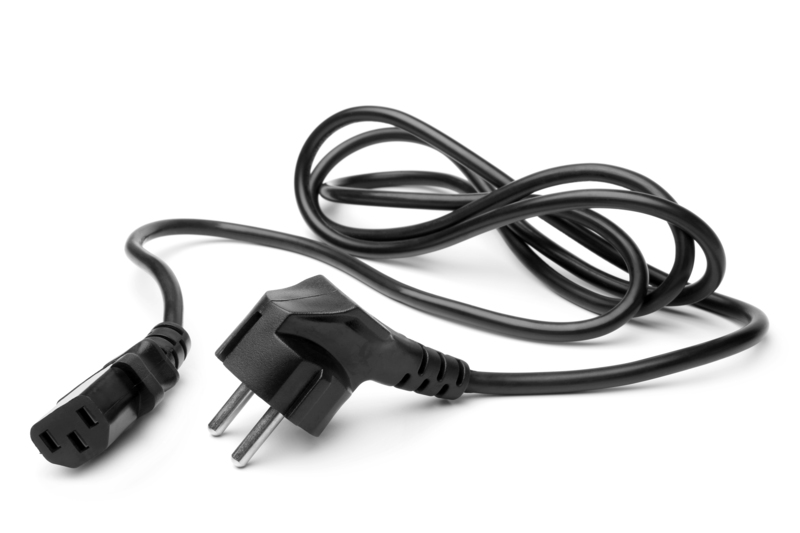How to Prevent Damage When Storing Your Freezer Unused for Months
Is your freezer about to sit unused for a long period, perhaps due to a move, renovation, or seasonal changes? Proper freezer storage is critical--not only does it keep the appliance in optimal condition, but it also prevents costly damage, unwanted odors, and health hazards like mold. In this comprehensive guide, you'll discover how to prevent damage when storing your freezer unused for months, along with actionable steps and essential maintenance tips for both upright and chest freezers.
Why It's Important to Store a Freezer Correctly
Many homeowners overlook the importance of correct freezer storage when the appliance won't be used for an extended time. Improperly stored freezers can develop issues such as:
- Mold and mildew growth: Lingering moisture turns into mold if not addressed properly.
- Unpleasant odors: Even tiny bits of leftover food or spilled liquids can cause persistent smells.
- Mechanical damage: Sitting idle can harm door seals, gaskets, and crucial components, shortening your freezer's life.
- Pest infestation: Unclean freezers may attract rodents or insects.
Key Considerations Before Storing Your Freezer
Whether you have a standalone upright freezer or a chest freezer, remember these important points:
- Is the storage area climate-controlled?
- Will the freezer be unplugged or plugged in?
- Will it be stored indoors or outdoors?

Step-by-Step Guide: How to Store a Freezer Unused
1. Empty the Freezer Completely
Start by removing all food items and ice trays. This prevents spoilage, odors, and the risk of attracting pests. Check for any expired goods or stuck-on ice and discard them. Never leave anything inside for months.
2. Defrost the Freezer Thoroughly
Built-up ice can thaw and leak during storage, causing water damage or even electrical issues when you reactivate the appliance. Here's how to defrost your freezer for long-term storage:
- Unplug the appliance.
- Open the door/lid and let the ice melt completely. Speed up the process with a fan or by placing bowls of warm water inside.
- Soak up excess water with towels as the ice melts.
Don't use sharp tools! This can puncture the freezer's lining and cause permanent damage.
3. Clean and Sanitize Every Surface
Bacteria and mold thrive in neglected appliances. Take the time to clean your freezer for safe storage:
- Mix a solution of warm water and mild soap, or baking soda (about 1 tablespoon per quart of water).
- Wipe down every interior surface, including drawers, racks, and gaskets with a soft cloth or sponge.
- Don't forget the exterior!
- Use a solution of equal parts water and white vinegar (or a disinfecting wipe) for a final pass.
Leave the door open for at least 24 hours to ensure every corner is completely dry. Moisture left behind is a recipe for mold.
4. Remove or Secure Shelves and Drawers
Take removable shelves, baskets, or bins out, wash them, and dry separately. If you prefer to leave them inside, secure them with tape or bungee cords to prevent movement and breakage when moving.
5. Check and Protect the Freezer Seal
The door gasket (rubber seal) stops warm air, pests, and humidity from getting inside your freezer. Before storage:
- Inspect for cracks, mold, or brittleness.
- Clean with mild soap and water, then dry thoroughly.
- Rub a thin layer of petroleum jelly or mineral oil on the gasket to keep it soft and prevent sticking.
6. Prop the Door Open Slightly
This is one of the most important tips for long-term freezer storage. Keeping the door slightly ajar prevents odor buildup and allows air circulation inside the freezer, reducing the risk of mildew. Use a towel, wadded newspaper, or specialty appliance wedge for this purpose.
7. Unplug and Prepare the Freezer for Storage
You must unplug the freezer when not in use for long periods. Leaving it unplugged:
- Saves energy and money
- Reduces fire and electrical risks
- Prevents mechanical wear
Secure the power cord so it doesn't drag or tangle, and tape it to the back of the appliance if possible.
8. Choose the Right Storage Location
Where you store your freezer can make a big difference:
- Store in a clean, dry, and well-ventilated area. Avoid humid basements or garages if possible.
- Keep off the ground--use a pallet or bricks under the appliance to allow air flow and prevent rust or water damage.
- If storing outdoors, use a weatherproof freezer cover but always keep the lid/door slightly open.
Climate Matters: Should You Store Your Freezer in a Hot or Cold Place?
If possible, avoid exposing your freezer to extreme temperatures. High heat can damage insulation, while deep cold (in unheated garages) may crack plastic parts and gaskets. Climate-controlled spaces such as basements, inside homes, or storage units are best.
9. Cover Your Freezer Properly
Dust, insects, and accidental bumps can damage your appliance over time. Protect your freezer during storage by:
- Using a breathable cloth cover (not plastic, which traps moisture).
- Avoiding wrapping the appliance tightly--airflow is essential.
- If using a commercial storage facility, request a dust cover or store in a designated appliance bay.
Additional Tips for Long-Term Upright and Chest Freezer Storage
Periodically Check Your Stored Freezer
If you're able, inspect your unused freezer every few weeks or months. Look for signs of moisture, pests, or surface rust. Wipe away any dust and make sure the door remains open and the seal is not sticking.
Don't Forget About Insurance and Safety
When placing your freezer into storage--especially in shared or rental spaces--check if it's covered by your home or storage insurance in case of accidental damage or theft.
Label the Appliance for Future Use
Secure a large note or label to the front indicating cleaning date, storage instructions, and to remind yourself to remove inner supports or tape before plugging in again.
Use Desiccant Packs or Baking Soda
Placing an open box of baking soda or a few desiccant packs inside the freezer will help absorb any residual odors and excess moisture during months of non-use.
Common Mistakes to Avoid When Storing Your Freezer
- Leaving the freezer closed tight--always keep the door slightly open!
- Ignoring the gasket--an uncared-for seal dries out and cracks.
- Storing without cleaning--even a clean-looking freezer harbors bacteria.
- Forgetting to check periodically, especially in humid or pest-prone areas.
- Covering with plastic--this traps moisture and breeds mold.
How to Safely Restart Your Freezer After Storage
Once it's time to use your freezer again, follow these steps to ensure safe and effective operation:
- Remove any tape, wedges, or newspaper holding the door open.
- Inspect the inside and outside for dust, pests, rust, or moisture.
- Clean out any desiccant packs or baking soda used during storage.
- Allow freezer to sit upright (if it was moved horizontally) for at least 4 hours before plugging in--this lets compressor oil settle and prevents damage.
- Plug in the freezer and allow it to cool for several hours before loading food.
Signs You Need a Service Call After Storage
If you notice non-cooling, unusual noises, water leaks, persistent smells, or trouble closing the door, call a professional appliance repair technician. Extended periods of non-use can sometimes reveal underlying issues.

FAQ: Storing Your Freezer Unused for Months
Q: Can I leave my freezer switched off but closed for long-term storage?
No. Keeping a switched-off freezer tightly closed for months creates an ideal environment for mold and odors. Always prop the door open slightly.
Q: Is it safe to store a freezer in a garage for months?
Yes, if your garage isn't humid or subject to temperature extremes, and if you protect the appliance from pests and moisture. Lift it off the floor and keep the door open a crack.
Q: How long can a freezer stay unused without damage?
If properly cleaned, dried, unplugged, and stored with the door open, a freezer can be safely left unused for many months (6-12+ months) without risk of permanent damage.
Q: What if my freezer smells musty when I reopen it?
Remove all shelves, wipe down every surface with vinegar solution, and air out for 24 hours. Baking soda can help absorb residual odors.
Conclusion: Protect Your Investment with Smart Freezer Storage
Storing your freezer unused for months is simple, but skipping crucial steps can lead to mold, mechanical failure, or hefty replacement costs. By following these best practices for long-term freezer storage--emptying, defrosting, cleaning, propping the door open, and choosing the right environment--you extend your appliance's lifespan and ensure it's ready for reliable service when you need it again.
Remember: A little preparation goes a long way toward preventing damage when storing your freezer unused for months. Want more appliance care tips? Subscribe to our newsletter and stay informed!



